A farm like no other in Laos—tour, taste, and connect at Laos Buffalo Dairy, where your visit supports education and local livelihoods.
Just outside the UNESCO listed town of Luang Prabang, there is a farm where visitors come for the mozzarella, but stay for the story. Laos Buffalo Dairy is not your typical tourist stop. It shows that travel can do more than tread lightly; it can help restore land, knowledge, and livelihoods. At the dairy, you will find fun and interactive tours, a farm side café serving a gourmet all natural menu, and the only buffalo ice cream in Laos. And it all began when two women, Rachel and Susie, decided to swap corporate life for buffalo milk.
From “Crazy Idea” to Community Impact
Back in 2014, Rachel, a self taught chef from the US, and Susie, an Australian business executive, moved to Laos with their families. Neither had experience in farming, but both shared the same vision: to create the country’s first buffalo dairy. The goal was to bring extra income to local farmers, make delicious cheese, and support better animal care. Starting with just three buffalo, countless YouTube tutorials, and plenty of trial and error, they slowly crafted recipes for mozzarella, ricotta, and even buffalo milk ice cream. Locals were skeptical at first, but Rachel and Susie’s determination won them over. Today, the farm is known for its award winning dairy products, it employs local staff, and has become one of Luang Prabang’s most surprising and inspiring success stories.


More Than Cheese
At its heart, Laos Buffalo Dairy is about building connections and creating shared value. Instead of buying buffalo outright, the farm rents female buffalo that would otherwise be underused, as male buffalo are typically sold for meat. Farmers get a steady rental income and, thanks to better nutrition and vet care, the animals come back healthier. Around 200 buffalo are rented from villages, milked daily for about six months, then returned home until they calve again, when the cycle starts anew. During this time, the farm feeds, vaccinates, and looks after both the buffalo and their calves.
Running the dairy has also created 40 full time jobs, many filled by the same farmers who helped prepare the land when the idea was just beginning. Beyond the farm gates, the dairy’s work touches nearly every part of the community. Farmers receive training on animal care, breeding, and disease prevention, which cuts calf mortality and keeps herds healthier. Buffalo manure becomes compost to enrich local soils, turning waste into something useful. Profits help fund milk programs in rural schools so that local children get better nutrition. The dairy also works with AgCoTech to create and distribute medicated mineral blocks, improving animal health and helping reduce carbon emissions.
All of this is possible thanks to a socially responsible model funded, owned, and managed by foreign investors together with two Lao nationals, who partner closely with local villagers. The result is more than just cheese. It is healthier herds, new skills, rental income for families, and practical experience for teachers and students from the Northern Agricultural College in Luang Prabang. It is tourism that gives back.


What Travelers Can Actually Do There
What makes visiting Laos Buffalo Dairy so memorable is how hands on and personal it feels. Tours usually last about an hour and begin with an introduction from a farm guide trained by Rachel and Susie. Guests get to try milking a buffalo and bottle feeding baby buffalo, always a highlight. There is also a small petting area with pigs, rabbits, and chickens, and a behind the scenes look at how fresh mozzarella is made. Visitors taste a delicious range of products, from creamy yogurt to ice cream in local flavors like tamarind and lemongrass, along with signature cheeses. And there is time to chat with the team, sometimes even meeting Rachel or Susie, and hear directly how tourism supports local farmers and school nutrition. It is not just about seeing, it is about understanding and leaving with the sense that your visit truly made a difference.


Curious to experience this unique farm tour? Reach out to us at sales.laos@khiri.com —we’re excited to help you plan your visit!

